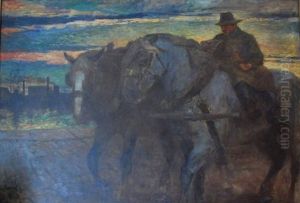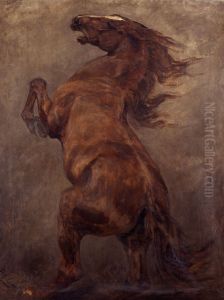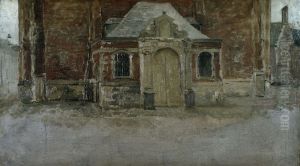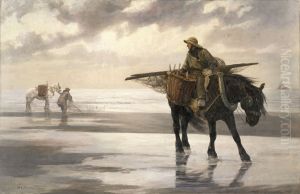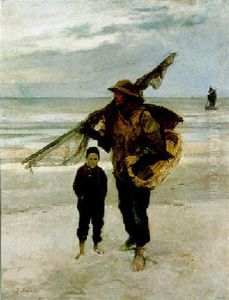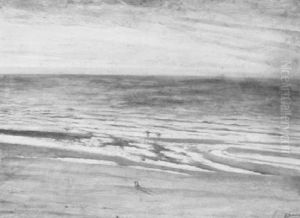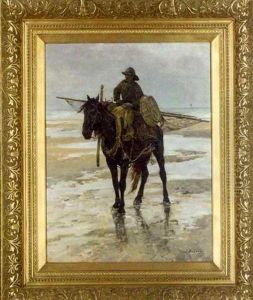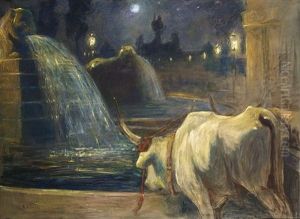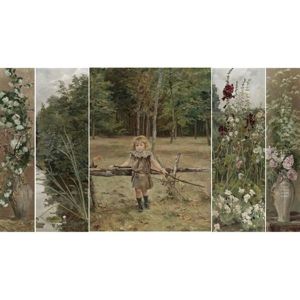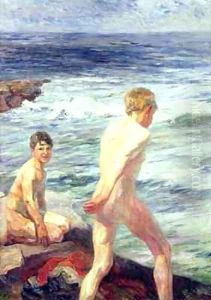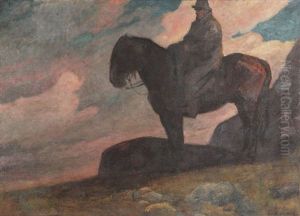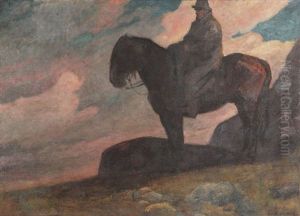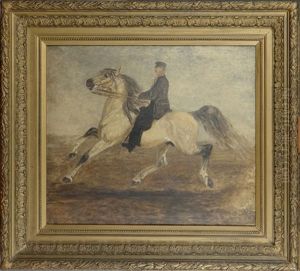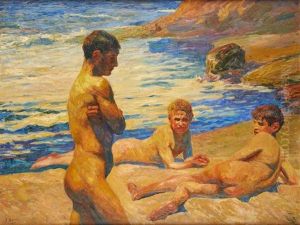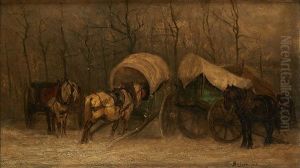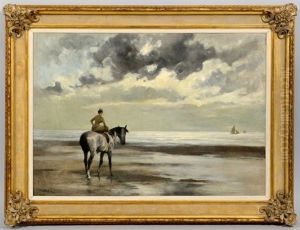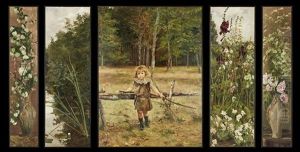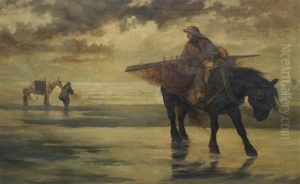Jean Delvin Paintings
Jean Delvin, born in Ghent, Belgium, in 1853, was a prominent figure in the world of Belgian art, particularly known for his contributions as a painter and art educator. His life and career spanned a period of significant change in the European art scene, from the late 19th century into the early 20th century, a time marked by the transition from traditional academic art to the more experimental approaches of modernism. Delvin's work, however, remained deeply rooted in the academic tradition, reflecting his rigorous training and a profound respect for classical art forms.
Delvin's artistic journey began at the Royal Academy of Fine Arts in Ghent, where he was both a student and later a distinguished professor. His education and teaching career there were foundational to his development as an artist and mentor. Delvin was particularly known for his historical and mythological paintings, which exhibited a mastery of form, composition, and color. His works often depicted scenes with a dramatic intensity, bringing to life the narratives of ancient mythology and European history with a vividness that was both educational and captivating.
Throughout his career, Jean Delvin was an active participant in the art community, not only as an educator but also through his involvement in various exhibitions and art societies. His commitment to art education was evident in his role at the Royal Academy of Fine Arts in Ghent, where he influenced generations of young artists, instilling in them a respect for the technical and aesthetic principles of painting. Despite the changing artistic trends of his time, Delvin's work remained consistent in its quality and adherence to the ideals of beauty and craftsmanship that characterized academic art.
Delvin's legacy is not only preserved in his paintings but also in the impact he had on his students and the Belgian art scene. His dedication to the arts was recognized by his peers and the broader community, earning him various honors throughout his career. Jean Delvin passed away in 1922, leaving behind a body of work that continues to be appreciated for its technical proficiency and artistic integrity. His life and career offer a glimpse into a pivotal moment in art history, bridging the gap between the traditions of the past and the evolving expressions of the early 20th century.
